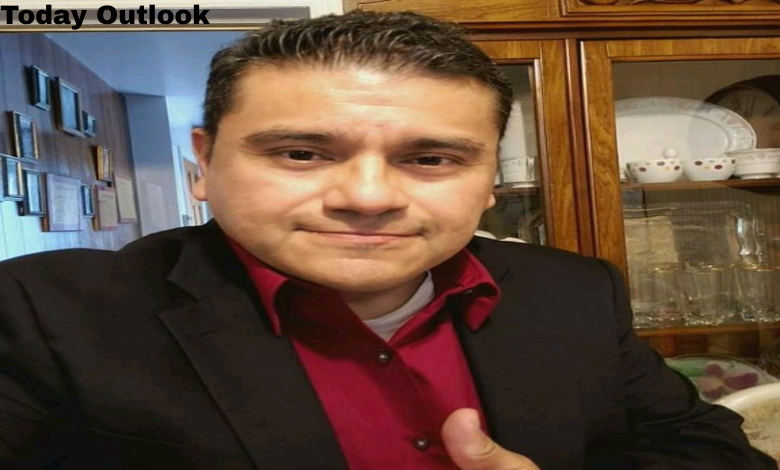Louis Enrique Flores is a licensed social worker with a career spanning nearly four decades, focused on bilingual mental health services, trauma intervention, and substance abuse counseling. Based in Wake Forest, North Carolina, Flores has leveraged his clinical training and pastoral education to support diverse populations across New York and other regions through both on-site and remote care models. His expertise in English and Spanish communication, combined with a robust academic background and numerous state credentials, has made him a consistent contributor to behavioral health services for children, adults, families, and medically vulnerable patients.
Academic Foundation and Interdisciplinary Training
Louis Enrique Flores began his academic journey with a Bachelor of Arts in Psychology from St. Joseph’s University New York (1980–1984). Building on that foundational knowledge, he pursued MA-level studies in Psychology at Queens College between 1986 and 1987. These early academic efforts set the stage for a long-standing commitment to the psychological and social aspects of health care.
Flores further expanded his qualifications with a Master of Divinity (MDiv) from Alliance Theological Seminary (1988–1993), integrating theological studies with counseling and pastoral care. His interest in the intersection of spirituality and mental health continued with doctoral-level work at Drew University from 1997 to 1999, where he focused on pastoral studies and counseling in a congregational setting.
The centerpiece of his clinical education is a Master of Social Work (MSW) from Adelphi University (1999–2002), where he specialized in Clinical Social Work and graduated with a 3.67 GPA. His coursework and field experience during this period deepened his understanding of direct practice, trauma care, and systemic support models for mental health treatment.
Licenses and Certifications
Flores holds several professional credentials that reinforce his clinical authority and practical readiness. His long-standing Licensed Master Social Worker (LMSW) credential was issued by New York State in 2004 and remains active until 2026. Additionally, he earned a Certified Clinical Trauma Professional (CCTP) designation in 2024 from PESI, underlining his competence in trauma-informed care.
Earlier in his career, Flores held certifications as a Credentialed Alcoholism and Substance Abuse Counselor (CASAC) from the New York State Office of Addiction Services and Supports. Though this credential expired in 2022, it reflects over two decades of experience dealing with chemically dependent populations.
Early Career: Foundations in Substance Abuse Counseling
Flores entered the field during a pivotal time in U.S. public health history, as the HIV/AIDS epidemic intersected with the opioid crisis. His earliest roles were with South Brooklyn Medical Administrative Services, Inc. (1985–1986), and Narco Freedom Inc. (1986–1987), where he worked as a Methadone Maintenance Treatment Program (MMTP) Counselor.
He joined NewYork-Presbyterian Hospital in 1987, serving in its downtown Manhattan MMTP unit for over 16 years. His work involved full-time counseling for opioid-dependent patients using agonist therapy. The clinic operated as a community resource for those working in the Wall Street area and broader NYC, offering integrated mental health and medical services. Flores participated in individual and group therapy sessions, often in both English and Spanish.
Expanding Responsibilities: Clinical Social Work and Mental Health Therapy
From 2003 to 2008, Flores worked at Far Rockaway Treatment Center under the Zucker Hillside Hospital, part of what later became Northwell Health. Here, he provided bilingual services to MICA patients (those with mental illness and chemical addiction). Regulated by JCAHO and OASAS, his role required regular documentation, compliance with state health protocols, and cultural sensitivity when working with diverse patients.
During this time, he also contributed to Community Counseling and Mediation (2005–2012) in Brooklyn, New York. He supported 25 clients at a time through individual mental health therapy sessions, including adolescents, adults, and families. His work was regulated by the Office of Mental Health (OMH), ensuring structured, ethical practice.
Specialized Work with Court-Mandated and Domestic Violence Populations
Between 2012 and 2022, Flores served as a Licensed Master Social Worker at the Counseling Services of EDNY. His client base primarily included individuals mandated by courts or involved in domestic violence cases. This experience required him to coordinate with criminal justice systems, maintain accurate reporting, and apply trauma-informed care in high-risk scenarios. He also provided motivational interviewing and cognitive behavioral therapy (CBT) to foster client self-awareness and behavioral change.
Western Queens and PRFI: Hybrid Models and Community Focus
In parallel, Flores worked part-time with the Western Queens Consultation Center (2014–2022) and Puerto Rican Family Institute (2013–2014), where he provided outpatient therapy to youth and adults. These centers emphasized culturally competent services for Hispanic communities in New York City. His therapy sessions transitioned to remote delivery after the COVID-19 pandemic in 2020, demonstrating flexibility in adapting clinical services to a telehealth format.
His bilingual skill set enabled him to serve individuals more effectively, especially in communities where language barriers often limit access to mental health services. He used standard tools such as the PHQ-9 and GAD-7 to assess depressive and anxiety symptoms, along with interventions rooted in CBT and trauma-focused CBT (TF-CBT).
Transition to Telehealth: Emerest and Remote Practice
Flores formally embraced remote social work in 2022, after relocating to North Carolina. His first fully remote role was with Emerest, a healthcare company supporting homebound patients in states like New York, New Jersey, Pennsylvania, and Missouri. He conducted weekly assessments and crisis interventions, supported by a clinical team of nurses and fellow social workers. His responsibilities included providing psychosocial support during hospital transitions and evaluating mental health risk factors using digital tools.
Private Practice: Current Work at Queens Consultation Center
In 2024, Flores began practicing independently with the Queens Consultation Center, offering telehealth-based psychotherapy to clients in New York State. His current work includes intake assessments, ongoing psychotherapy, and case reviews with adult and adolescent clients. He uses a combination of motivational interviewing (MI), dialectical behavior therapy (DBT), and trauma-informed practices. Most of his therapy sessions are delivered in English and Spanish, allowing him to work effectively with multicultural populations.
He continues to rely on standard clinical metrics such as the PHQ-9 (for depression) and GAD-7 (for anxiety) to track patient progress and modify interventions accordingly. His current caseload includes individuals dealing with trauma, chronic stress, dual diagnoses, and adjustment disorders.
Skills and Clinical Tools
Throughout his career, Flores has consistently integrated various evidence-based practices, including:
- Cognitive Behavioral Therapy (CBT)
- Motivational Interviewing (MI)
- Trauma-Focused CBT (TF-CBT)
- Dialectical Behavior Therapy (DBT)
- Grief Counseling
- Crisis Intervention
His experience with clinical assessments, including PHQ-9, GAD-7, and trauma symptom inventories, allows him to evaluate mental health symptoms methodically and communicate findings to other professionals when referrals or escalations are necessary.
Language Proficiency and Cultural Competency
Flores’s bilingualism is a critical part of his professional toolkit. His ability to conduct therapy in both English and Spanish has opened access to care for many who might otherwise face language or cultural obstacles. This skill is particularly valuable in underserved immigrant communities and among Spanish-speaking populations with limited English proficiency.
Cultural awareness and empathy have been central to his approach, whether working with opioid-dependent patients, domestic violence survivors, or individuals experiencing mental health crises. Flores combines clinical rigor with pastoral sensibility, offering a unique balance of evidence-based practice and interpersonal care.
Influence of Pastoral Studies
While much of Flores’s professional identity is grounded in clinical mental health work, his background in divinity and theology has helped him build rapport with patients from faith-based communities. His ability to engage with spiritual concerns during therapy sessions—without proselytizing—adds a layer of depth to his counseling. Clients dealing with grief, moral injury, or existential questions have benefitted from this integration of psychological and spiritual frameworks.
Long-Term Impact and Legacy
Over the course of nearly 40 years, Louis Enrique Flores has contributed to multiple dimensions of mental health care—from street-level substance abuse counseling to statewide telehealth networks. His work across hospitals, non-profits, government-licensed clinics, and private practices demonstrates a deep understanding of the complex needs facing individuals with mental illness and substance use disorders.
He has helped expand access to care in both urban and remote settings, worked with marginalized populations, and adapted to shifts in public health, such as the COVID-19 pandemic. His career is marked by continuity, adaptability, and a strong commitment to professional development and cultural responsiveness.
Conclusion
Louis Enrique Flores’s career offers a blueprint for what it means to serve others through a multidisciplinary, bilingual, and trauma-informed approach. With a foundation built on decades of practical experience, rigorous academic study, and state licensure, Flores continues to provide critical mental health services to vulnerable populations—especially in Spanish-speaking communities—via telehealth and community partnerships. His integration of clinical acumen and pastoral insight enables him to respond to the evolving demands of mental health care with professionalism and humanity.
FAQs
1. Who is Louis Enrique Flores?
Louis Enrique Flores is a bilingual Licensed Master Social Worker with decades of experience in trauma, addiction, and mental health therapy.
2. What kind of therapy does Louis Enrique Flores provide?
He offers CBT, DBT, TF-CBT, and motivational interviewing, primarily through remote sessions in both English and Spanish.
3. Is Louis Enrique Flores certified in trauma counseling?
Yes, he holds a Certified Clinical Trauma Professional (CCTP) certification and has treated trauma survivors across various settings.
4. Where does Louis Enrique Flores currently work?
He practices remotely through the Queens Consultation Center, providing telehealth therapy for clients in New York State.
5. What populations has Louis Enrique Flores served?
He has worked with children, adults, families, court-mandated clients, and those with co-occurring mental health and substance use disorders.

